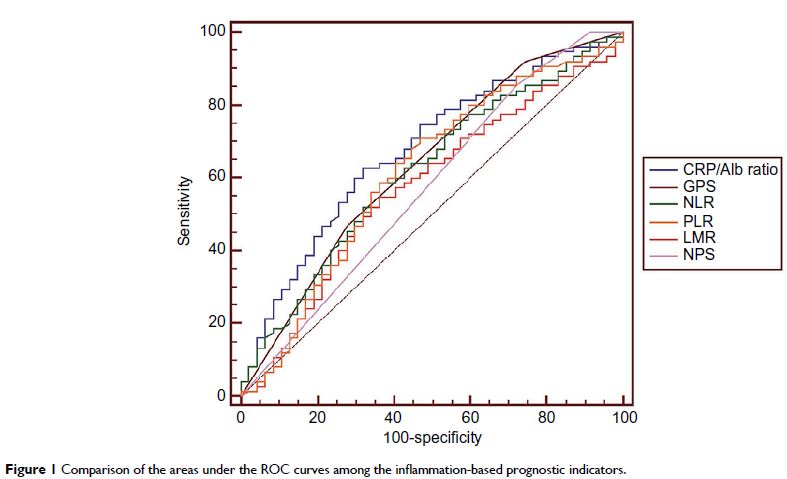109229
论文已发表
注册即可获取德孚的最新动态
IF 收录期刊
- 3.4 Breast Cancer (Dove Med Press)
- 3.2 Clin Epidemiol
- 2.6 Cancer Manag Res
- 2.9 Infect Drug Resist
- 3.7 Clin Interv Aging
- 5.1 Drug Des Dev Ther
- 3.1 Int J Chronic Obstr
- 6.6 Int J Nanomed
- 2.6 Int J Women's Health
- 2.9 Neuropsych Dis Treat
- 2.8 OncoTargets Ther
- 2.0 Patient Prefer Adher
- 2.2 Ther Clin Risk Manag
- 2.5 J Pain Res
- 3.0 Diabet Metab Synd Ob
- 3.2 Psychol Res Behav Ma
- 3.4 Nat Sci Sleep
- 1.8 Pharmgenomics Pers Med
- 2.0 Risk Manag Healthc Policy
- 4.1 J Inflamm Res
- 2.0 Int J Gen Med
- 3.4 J Hepatocell Carcinoma
- 3.0 J Asthma Allergy
- 2.2 Clin Cosmet Investig Dermatol
- 2.4 J Multidiscip Healthc

六个炎症生物标志物作为尤因肉瘤预后指标的临床意义
Authors Li YJ, Yang X, Zhang WB, Yi C, Wang F, Li P
Received 20 July 2017
Accepted for publication 30 August 2017
Published 28 September 2017 Volume 2017:9 Pages 443—451
DOI https://doi.org/10.2147/CMAR.S146827
Checked for plagiarism Yes
Review by Single-blind
Peer reviewers approved by Dr Colin Mak
Peer reviewer comments 2
Editor who approved publication: Dr Antonella D'Anneo
Abstract: Cancer-related systemic inflammation responses have been correlated with
cancer development and progression. The prognostic significance of several
inflammatory indicators, including neutrophil–lymphocyte ratio (NLR), platelet–lymphocyte
ratio (PLR), Glasgow Prognostic Score (GPS), C-reactive protein to albumin
ratio (CRP/Alb ratio), lymphocyte–monocyte ratio (LMR), and neutrophil–platelet
score (NPS), were found to be correlated with prognosis in several cancers.
However, the prognostic role of these inflammatory biomarkers in Ewing sarcoma
has not been evaluated. This study enrolled 122 Ewing patients. Receiver
operating characteristic (ROC) analysis was generated to determine optimal
cutoff values; areas under the curves (AUCs) were assessed to show the
discriminatory ability of the biomarkers; Kaplan–Meier analysis was conducted
to plot the survival curves; and Cox multivariate survival analysis was
performed to identify independent prognostic factors. The optimal cutoff values
of CRP/Alb ratio, NLR, PLR, and LMR were 0.225, 2.38, 131, and 4.41,
respectively. CRP/Alb ratio had a significantly larger AUC than NLR, PLR, LMR,
and NPS. Higher levels of CRP/Alb ratio (hazard ratio [HR] 2.41, P =0.005), GPS (HR 2.27, P =0.006), NLR (HR 2.07, P =0.013), and PLR (HR 1.85, P =0.032) were significantly
correlated with poor prognosis. As the biomarkers had internal correlations,
only the CRP/Alb ratio was involved in the multivariate Cox analysis and
remained an independent prognostic indicator. The study demonstrated that
CRP/Alb ratio, GPS, and NLR were effective prognostic indicators for patients
with Ewing sarcoma, and the CRP/Alb ratio was the most robust prognostic
indicator with a discriminatory ability superior to that of the other
indicators; however, PLR, LMR, and NPS may not be suitable as prognostic
indicators in Ewing sarcoma.
Keywords: Ewing sarcoma,
inflammatory biomarkers, prognosis, survival, CRP/Alb ratio
